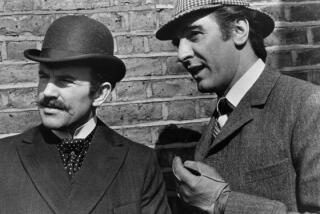THE CHEEVERS
- Share via
As editor of “The Uncollected Stories of John Cheever,” I appreciate the challenges faced by Elizabeth Mehren when she researched “A Cacaphony of Cheevers” (Dec. 2).
Sorting out four years of litigation is no trifling task, and she crisply summarized the whole affair. I write only to clarify a few points that perhaps the demands of space precluded her from exploring.
Yes, I sent a “working” list of stories to Ben Cheever in November, 1987. More important, in December of that year I discussed the entire project with Mrs. Cheever at her home: the subtitle “1930-1981” (certainly an indication of scope); John Updike and Raymond Carver as candidates to introduce the volume; the four or five stories identified as “uncollected” but which were then not located.
Mrs. Cheever has admitted in testimony that she voluntarily gave me one of these missing stories. At our meeting, she also reviewed the table of contents, and I left two photocopied binders of stories with her. Not once did Mary Cheever indicate she was anything but enthusiastic. With the story provided by Mrs. Cheever in hand, “The Uncollected Stories of John Cheever: 1930-1981” amounted to 64 or 65 identified and secured stories as of December, 1987.
The article by Mehren quotes an interview with attorney Martin Garbus: “Franklin Dennis never told Mrs. Cheever that he worked for Academy Chicago.” This is untrue, and not only in light of the one-to-one exchange just detailed. At the request of Ben Cheever, Mrs. Cheever’s eldest son, I wrote her in July of 1987 about Academy Chicago’s interest. This letter is in evidence. Moreover, Mrs. Cheever’s agent discussed the contract with Academy Chicago Publishers before she signed it in September, 1987.
One last point concerns the future proceedings before the Illinois Supreme Court: The court accepted Academy Chicago’s petition in part because if the status quo stands, the publisher will be left with a manuscript composed of 60% public-domain stories, i.e. works not copyrighted and which anyone can publish. Academy Chicago and I contend this is not “good faith” or “fair dealing,” which the law requires of parties to a contract.
FRANKLIN DENNIS, NEW YORK
More to Read
Sign up for our Book Club newsletter
Get the latest news, events and more from the Los Angeles Times Book Club, and help us get L.A. reading and talking.
You may occasionally receive promotional content from the Los Angeles Times.






